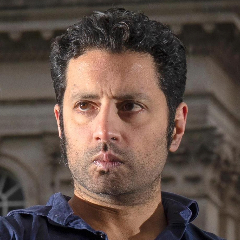You are not currently logged in. Please create an account or log in to view the full course.
Conceptualising Miracles
- About
- Transcript
- Cite
Miracles – Philosophical Perspectives
In this course Dr Arif Ahmed (University of Cambridge) explores philosophical perspectives on miracles, with special reference to David Hume. In the first module we look at different ideas about the nature of a miracle, and introduce Hume’s argument. After that, in the second module we examine Hume’s famous argument against witness testimony as evidence for miracles. In the third module, we evaluate some objections to Hume’s argument and explore Hume’s case for the likelihood of miracle stories. In the fourth module we examine the impact of divergent religions and multiple witnesses on Hume’s account of testimony. In the fifth module, we look at responses to the independent witness argument; before turning to Maurice Wiles’ take on miracles and deism in the sixth lecture. In the seventh and final lecture, we investigate further philosophical problems concerning our understanding of what constitutes a law of nature, as well as the miracles in relation to free will and fideism.
Conceptualising Miracles
In this module, we examine different understandings of a miracle, focusing particularly on (i) Voltaire’s weak and strong senses of a miracle (i) Hume’s idea of a miracle as an unusual, improbable event or prodigy (ii) the theological conception of a miracle as divine intervention (iii) the importance of miracles as prodigies for Hume’s argument (iv) depictions of miracles in religious documents (v) the epistemological character of Hume’s argument.
Cite this Lecture
APA style
Ahmed, A. (2022, April 21). Miracles – Philosophical Perspectives - Conceptualising Miracles [Video]. MASSOLIT. https://massolit.io/courses/miracles-philosophical-perspectives
MLA style
Ahmed, A. "Miracles – Philosophical Perspectives – Conceptualising Miracles." MASSOLIT, uploaded by MASSOLIT, 21 Apr 2022, https://massolit.io/courses/miracles-philosophical-perspectives

